Commercial roofing demands specialized skills, equipment, and durable systems due to heavy loads, extreme weather, complex designs, and safety regulations. Professional roofers address challenges like structural integrity, water leakage, and energy efficiency, using advanced tools and techniques for various roof types. Choosing a reputable roofer with experience, specialization, and strict safety protocols is crucial. Technology, innovative materials (e.g., cool roofs, green roofs), and regular maintenance extend roof lifespans and reduce costs, making commercial roofing both profitable and environmentally friendly.
Professional commercial roofers are essential in ensuring the integrity, safety, and longevity of business properties. In this comprehensive guide, we explore the unique challenges of commercial roofing, highlighting the critical role these experts play in maintaining business continuity. From understanding specialized skills needed to choosing the right roofer, we delve into advanced technologies shaping the industry and common issues, offering insights on enhancing energy efficiency and property value. Discover why professional roofers are indispensable assets for any commercial enterprise.
Understanding Commercial Roofing: Unique Challenges and Considerations
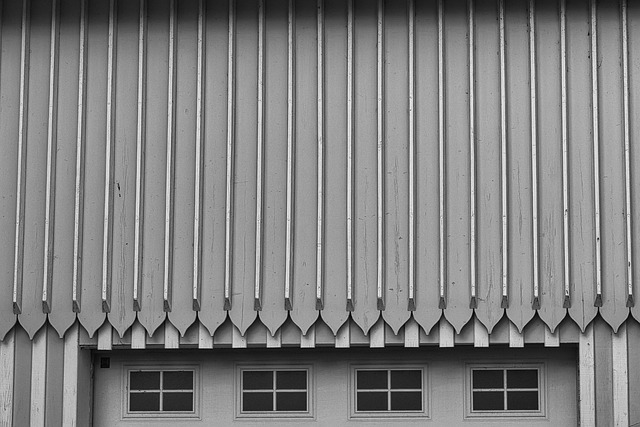
Commercial roofing presents a unique set of challenges compared to residential roofs. These structures often cover large areas, requiring specialized equipment and knowledge to install and maintain effectively. The primary consideration is durability; commercial buildings demand roof systems that can withstand heavy loads, extreme weather conditions, and prolonged exposure to environmental elements. Unlike residential properties, commercial spaces may also have complex designs, incorporating various materials and intricate flashing, which adds another layer of complexity during the roofing process.
Another critical aspect is accessibility and safety. Commercial roofs are typically accessed by roofer professionals using specialized ladders and scaffolds, adhering to strict safety protocols. Regular maintenance becomes essential to identify and address issues early, such as leaks or structural damage, which could disrupt business operations and lead to costly repairs if left unattended. Understanding these unique challenges is the first step in ensuring a robust and reliable commercial roofing system.
The Role of Professional Roofers in Ensuring Business Continuity
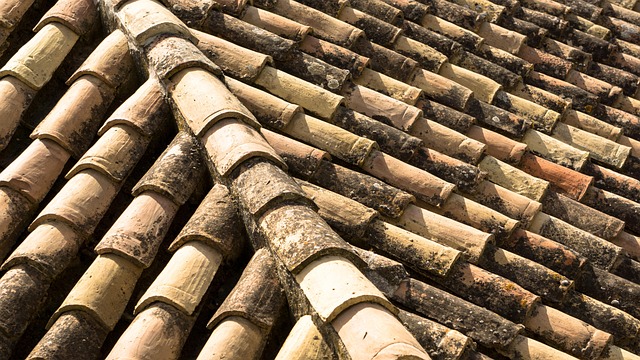
In the business world, where every minute counts, professional commercial roofers play a pivotal role in ensuring business continuity. Their expertise is invaluable when it comes to maintaining and repairing rooftops, which are often the first line of defense against harsh weather conditions and environmental elements. Commercial roofing involves specialized skills and knowledge to handle large-scale structures, addressing complex issues like structural integrity, water leakage, and energy efficiency.
When a business faces a roof emergency or needs regular maintenance, professional roofers step in to provide prompt solutions. They offer 24/7 services, ensuring that operations can continue uninterrupted. By employing these experts, businesses can safeguard their assets, protect sensitive equipment, and maintain a safe work environment. Regular inspections and timely repairs conducted by professionals contribute to extending the lifespan of commercial roofs, thereby reducing long-term costs and potential downtime.
Expertise Required: Specialized Skills for Commercial Roofing Projects

In the realm of commercial roofing, expertise is paramount. Professional roofer specialists possess a unique set of skills tailored to navigate the challenges presented by large-scale projects. Unlike residential roofing, commercial roofs often involve complex designs, demanding materials, and stringent safety regulations. These experts are adept at handling diverse roof types, from flat roofs with intricate drainage systems to pitched roofs requiring precise measurements and installations.
Their proficiency extends to using specialized equipment and techniques. They can efficiently manage tasks like installing heavy-duty membranes, sealing complex joints, and ensuring proper insulation—all while adhering to building codes and safety standards. This level of expertise ensures the longevity and structural integrity of commercial properties, making them indispensable in maintaining the resilience of modern business spaces.
Choosing the Right Commercial Roofer: Key Factors for a Successful Partnership
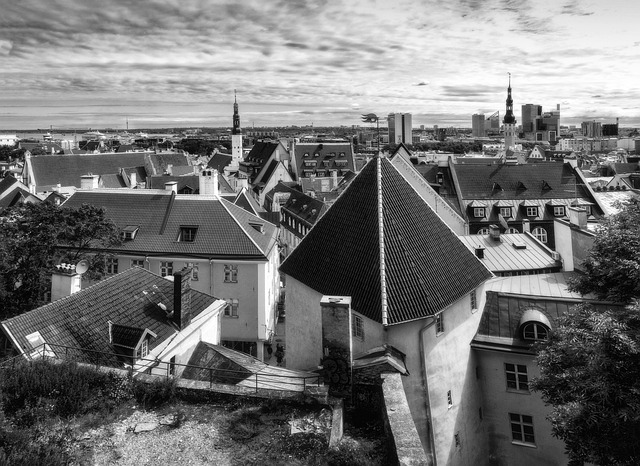
When selecting a commercial roofer, several key factors come into play for a successful partnership. Firstly, consider their experience and expertise in handling large-scale roofing projects. Reputable roofers should have a proven track record, demonstrating their capability to manage complex installations or repairs efficiently. Look for professionals who specialise in commercial Roofing, equipped with the latest tools and techniques, ensuring durability and longevity.
Additionally, safety is paramount on any construction site. Choose roofers committed to adhering to strict safety protocols and regulations, safeguarding both their team and your property. Their ability to provide references and insurance documentation is essential, offering peace of mind throughout the collaboration.
Advanced Technologies Transforming the Commercial Roofing Industry
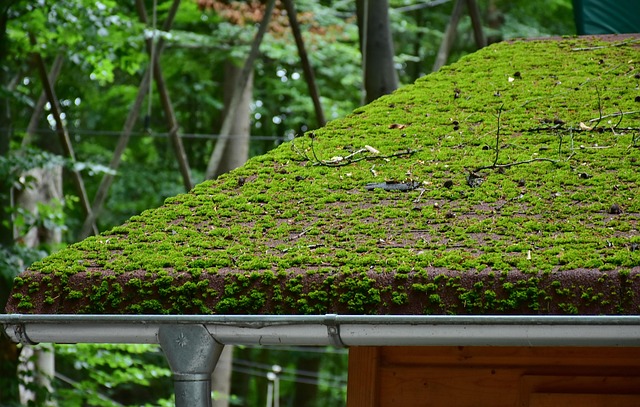
In the dynamic landscape of commercial roofing, advanced technologies are revolutionizing the industry, pushing it beyond traditional methods and materials. Modern commercial roofers now employ sophisticated tools and processes that enhance efficiency, durability, and sustainability. For instance, drone technology is being utilized for detailed inspections, allowing professionals to identify issues from a bird’s-eye view, thus saving time and resources. Additionally, 3D modeling and design software enable precise planning and accurate quotes, streamlining the entire roofing project lifecycle.
Beyond tools, innovative materials are at the forefront of this transformation. Lightweight, energy-efficient, and eco-friendly options like cool roofs and green roofs are gaining traction. These not only reduce a building’s carbon footprint but also lower cooling costs. Furthermore, advanced waterproofing solutions and high-performance insulation contribute to longer-lasting roofs, reduced maintenance, and enhanced indoor comfort for commercial spaces.
Common Commercial Roofing Issues and How to Address Them

Commercial roofing systems often face unique challenges due to their size, exposure to harsh weather conditions, and constant use. Common issues include leaks, which can be caused by damaged or worn-out flashing, missing shingles, or poor installation techniques. To address these, regular inspections are key; identifying and repairing problems early prevents extensive damage and costly replacements.
Another frequent concern is structural degradation, often stemming from age, environmental factors, or subpar materials. Roofers can mitigate this by employing durable, high-quality roofing materials and adhering to industry best practices during installation and maintenance. Regular maintenance, including cleaning gutters, inspecting for loose or missing fixtures, and sealing seams, also contributes to extending the lifespan of commercial roofs.
The Impact of Professional Roofers on Property Value and Energy Efficiency
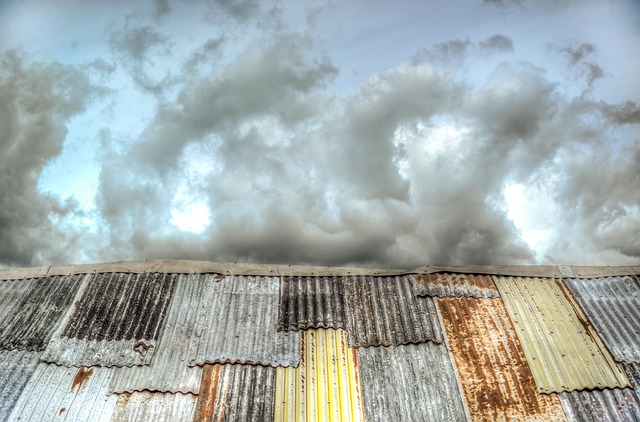
A well-maintained roof is an often-overlooked component in determining a property’s overall value, yet its impact on energy efficiency and curb appeal cannot be overstated. Professional commercial roofing plays a pivotal role in enhancing the longevity and aesthetics of buildings while significantly improving their energy performance. Expert roofer services are instrumental in installing, repairing, or replacing roofing systems that can stand up to harsh weather conditions, ensuring the structural integrity of the property.
Beyond functionality, modern commercial roofing solutions also contribute to sustainability and cost savings. Energy-efficient materials, such as reflective coatings and high-performance insulation, are designed to reflect heat, reduce interior temperatures, and lower energy bills. These advancements in commercial roofing not only benefit business owners through reduced operating costs but also make a positive environmental impact by decreasing the building’s carbon footprint.
